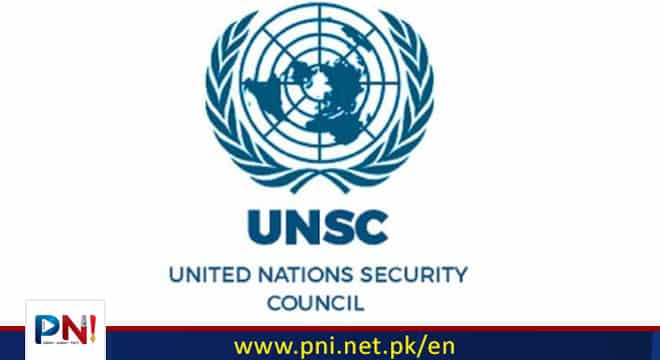UNITED NATIONS, Dec 08 (APP):Adopting a presidential statement, the UN Security Council recognized the importance of enhancing international and regional cooperation to counter transnational organized crime during a day-long open debate on Thursday.
By the text, the 15-nation Council expressed concern over the serious, growing threats posed by transnational organized crime and acknowledged that — in specific contexts and regions — terrorists may benefit from organized crime, whether domestic or transnational.
The debate took place days after Canada and the US accused the Indian government of being involved in targeting Sikh activists on the soils of the North American neighbours.
In this regard, Gurpatwant Singh Pannun, a pro-Khalistan leader, went on to accuse India of ‘transnational terrorism’ after the US foiled a plot to kill him.
The US said that the plot to kill Pannun, an American and Canadian citizen who is a lawyer with the Sikhs for Justice (SfJ) , an advocacy group, was thwarted, after the June murder of another Sikh leader, Hardeep Singh Nijjar, in a Vancouver, Canada.
“The foiled attempt on my life on American soil by the Indian agents is transnational terrorism which is a threat to the US sovereignty, freedom of speech and democracy, so I will let the US government respond to this threat,” said Pannun in an interview with The Financial Times.
India, he added, was “using mercenaries” to target and kill Sikh activists who support calls for the establishment of Khalistan, an independent Sikh homeland.
The statement that the Security Council adopted expressed concern that transnational crimes may threaten the security of countries on its agenda.
The Council also called on all member states to improve border management and international cooperation to effectively constrain the spread of transnational threats.
It further urged member states to strengthen their judicial, law enforcement and border-control capacities and to develop their capabilities to investigate arms-trafficking networks.
Additionally, the Council recognized the importance of enhanced political and conflict-related analysis, including on criminal networks that support transnational organized crime and terrorism.
Following the adoption, UN Secretary-General Antonio Guterres observed that transnational organized crime — “often invisible, but always insidious” — is a vicious threat to peace, security and sustainable development. “
Amidst a world in crisis, illicit economies find fertile ground to grow,” he said, highlighting the effects of such crime in countries like Afghanistan, Colombia, Haiti, Myanmar and Somalia.
While transnational criminal activities can take many forms, their ramifications are the same — weakened governance, corruption, lawlessness, death and destruction.
Guterres said the links between organized crime and terrorism is another concern. In the Sahel region in Africa, for example, illicit trade in fuel, drugs, arms and natural resources, provides resources for armed groups, threatening the lives and livelihoods of millions.
Although the Security Council has long recognized the danger posed by transnational organized crime to international peace and security “we must do more to strengthen our defences,” he said, urging action in three priority areas.
As multilateral cooperation is “the only credible path to target the criminal dynamics that fuel violence and prolong cycles of conflict,” it must be strengthened, he said.
The Secretary-General urged Member States to fully implement the UN Convention against Transnational Organized Crime and its three additional protocols, and to work together on investigations and prosecutions.
He also expressed hope that countries would reach consensus on a new treaty on cybercrime, and that they would share and exchange data, noting that crime groups have been quick to exploit cryptocurrencies and digital tools.
His second point highlighted the critical need to strengthen the rule of law which is “foundational to our efforts to find peaceful solutions to conflicts, and tackle the multifaceted threats posed by transnational organized crime.”
Effective rule of law builds trust in institutions, creates a level playing field, and contributes to reducing corruption. It also underpins human rights and enables sustainable social, political, and economic development.
However, “many countries are at grave risk of the Rule of Lawlessness,” he warned. “From unconstitutional seizures of power to the trampling of human rights, governments themselves are contributing to disorder and a lack of accountability.”
Guterres appealed for countries to strengthen prevention and foster inclusion, which includes stepping up efforts to achieve sustainable development for all.
Action required includes ensuring respect for human rights, tackling cybercrime more effectively, and advancing gender equality.
The head of the UN Office on Drugs and Crime (UNODC), Ghada Waly, echoed the Secretary-General’s call for collective global action.
She previewed a report, to be published on Friday, which reveals that organized criminal groups or gangs are responsible for almost a quarter of all homicides worldwide.
The impact of organized crime is also manifesting in alarming new ways, she said, “from shocking forms of violence in European port cities connected with the drug trade, to political assassinations and infiltration of prisons in parts of Latin America.”
Follow the PNI Facebook page for the latest news and updates.









